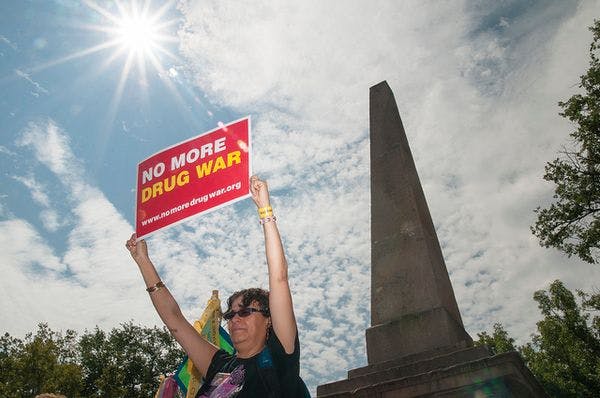La guerra contra las drogas se cobrará más víctimas si no se promueven estrategias de reducción de daños
Una de cada cinco personas encarceladas en el mundo está en prisión por un delito relacionado con las drogas y, sobre todo, por la posesión o el uso personal. Más información, en inglés, está disponible abajo.
Suscríbase a las Alertas mensuales del IDPC para recibir información sobre cuestiones relacionadas con políticas sobre drogas.
By Gen Sander and Katie Stone
Sometimes good news can distract you from what's going wrong under the surface. Earlier this month, the UK reported a 79% drop in the number of 18-to-24 year olds seeking treatment for heroin dependence. It was hailed as a success by anti-drug campaigners, but these figures mask worrying trends in the response to drug use.
As Harm Reduction International (HRI) report today shows, we're seeing a sudden decline in efforts to get health interventions like needle and syringe programmes (NSPs) and opioid substitution therapy (OST) to people who inject drugs. These interventions are part of the harm reduction approach to drug use. It's about trying to reduce the negative health, social and human rights impacts of drug use and policy, rather than just focusing on criminal justice.
Click here to read the full article.
Keep up-to-date with drug policy developments by subscribing to the IDPC Monthly Alert.
Thumbnail: CC Eneas De Troya
Temas
- Acceso a medicamentos fiscalizados
- Justicia penal
- Descriminalización
- Reducción de la demanda
- Tratamiento a la dependencia a las drogas
- Reducción de daños
- Hepatitis
- Opio y opioides
- VIH/Sida
- Derechos humanos
- Prisión y encarcelamiento
- Sobredosis
- Reducción de la oferta
- Violencia, acción policial y castigo
- Descriminalización, regulación y reforma
- Salud y reducción de daños
- Derechos humanos y justicia social
Perfiles relacionados
- Harm Reduction International (HRI)
- Human Rights Watch (HRW)
